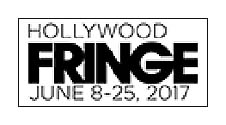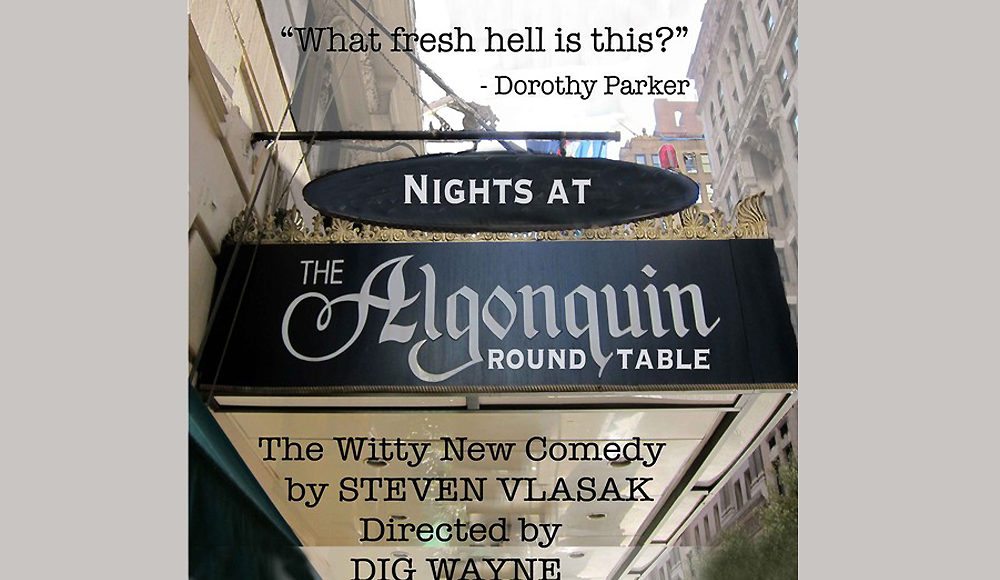 By Ernest Kearney — One of the most difficult undertakings in the theatre is to construct a play around famous folks. It’s just difficult period.
By Ernest Kearney — One of the most difficult undertakings in the theatre is to construct a play around famous folks. It’s just difficult period.
The 1976 bio flick of Clark Gable and Carole Lombard, aptly titled Gable and Lombard opened to reviews of two extremes; James Brolin was lambasted in the role of Gable, because it’s near impossible to portray an icon. Jill Clayburgh was praised in the role of Lombard because she was hardly an icon and therefore much more of an unknown quantity.
I do not care that it won more Emmy awards than any miniseries in history, I couldn’t buy Paul Giamatti as John Adams our second president in the television version of David McCullough’s superb biography. Excellent actor that Giamatti is, I just don’t think you can sandblast the twentieth century off of him.
Nor do I hold much hope for the announced Leonardo DiCaprio film portrayal of the 28th president of the United States, Woodrow Wilson, who was one of the most contemptible men ever to hold that office.
Sometimes it’s best to disguise the main character under the garb of a fictional creation, as Arthur Kopit did in (1991) Road to Nirvana (It’s Madonna.)
Others have found success in removing their historical characters from their historical reality, as most notably Lin-Manuel Miranda did with Alexander Hamilton or as Richard Thomas and Stewart Lee manage to do by refitting a famous talk show host in their Jerry Springer: The Opera.
Now if your characters happen to be great men of wit or words, the task grows even more perilous. Then you run the risk of having your play devolve into a “greatest hits” of their bon mots, not to mention the hazard of the playwright’s own additions paling in comparison to the historical dialogue of their protagonists.
That playwright Steve Vlasak avoids both those pitfalls in his Nights at the Algonquin Round Table goes to his credit.
For doing a play based on the Algonquin Round Table earns Vlasak points for chutzpa.
For the unacquainted let me explain, once upon a time (1919 to 1929) in the dining room of a New York Hotel some of the wittiest typewriter thumpers, newsmen, critics and raconteurs in the country would gather for lunch every day and bluster bon mots, quips, wisecracks and bat at each other with gibes and ripostes that would then be reported in a column featured in the biggest newspapers nationwide.
The personalities with whom Vlasak populates his play are some the most acerbic wits who carved up their targets with tongues sharpened daily on alcohol soaked whetstones.
There’s Dorothy Parker (Roz Stanley) perhaps the best known of the table today who once said of Katharine Hepburn’s acting, “She runs the gamut of emotions, from A to B.” There’s George S. Kaufman (Chris Gooch) one of America’s greatest playwrights, who along with Moss Hart wrote The Man Who Came to Dinner, and there’s Alexander Woollcott (Steve Brock) who served as the model for Sheridan Whiteside in that play and later played the role on stage. There’s Franklin Pierce Adams (Craig Win) one of the most read columnists of his day, and the unjustly forgotten actor and humorist Robert Benchley (Nicholas Daly Clark).
Into this cauldron of bitter barbs and scalding sarcasms Vlasak drops a wide-eyed youth Jack (Christopher Tedrow) with hopes of dazzling this prestigious enclave with his literary merits and who finds a reluctant ally in Sally (Erin Jo Harris), one of the hotel’s kitchen staff.
Vlasak serves up the larger-than-life personalities here with great skill and aplomb, while at the same time managing to succeed in penning original characters who can hold their own within this circle.
The characters of Parker and Benchley dominate the play, the former partially because she figures heavily into the plot of getting the green Jack before the literary royalty of the table and because her drollness still has amazing impact today. But the other characters tend to fade into the background (which Woollcott would have hated and Kaufman doesn’t deserve.)
Vlasak is fortunate in having a director, Dig Wayne, who possesses the skill to utilize the Three Clubs venue flawlessly and also move the play to a pitch perfect pacing.
Harris and Tedrow are excellent as the two outsiders, and Stanley shines as the glibbest gal produced by Western Civilization. But it is Clark as Benchley who all but steals the show as he distills the essence of Benchley’s success as his own brew: timing.
 The scenes may be a bit short, and it would have been nice to introduce some of the “Table’s” own drama into the piece, but that’s me. It’s Vlasak’s play to write and he does a superb job with that writing. For seamlessly fusing his own words to the words of these verbal giants is an accomplishment worthy of note, and for presenting these remarkable figures to a world that has all but forgotten them that earns points as well.
The scenes may be a bit short, and it would have been nice to introduce some of the “Table’s” own drama into the piece, but that’s me. It’s Vlasak’s play to write and he does a superb job with that writing. For seamlessly fusing his own words to the words of these verbal giants is an accomplishment worthy of note, and for presenting these remarkable figures to a world that has all but forgotten them that earns points as well.
But in the end, it’s a wonderfully crafted and excellently performed comedy that earns all involved a GOLD MEDAL.
♦ ♦ ♦
Nights at the Algonquin Round Table
Is Playing During Fringe 2017 at
(Three Clubs Stage Room)
1123 N. Vine Street
Hollywood, CA
Remaining Fringe Show:
Friday, June 23, 2017 — 8:30 pm
For Tickets and Additional Information:
Support the Voices of The TVolution
Like us on Facebook and Please Subscribe





